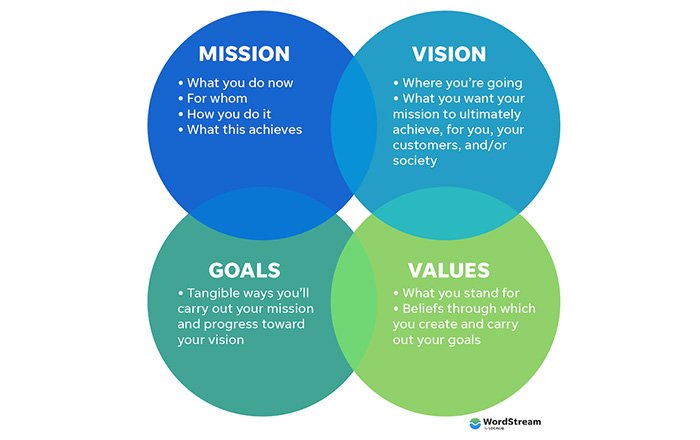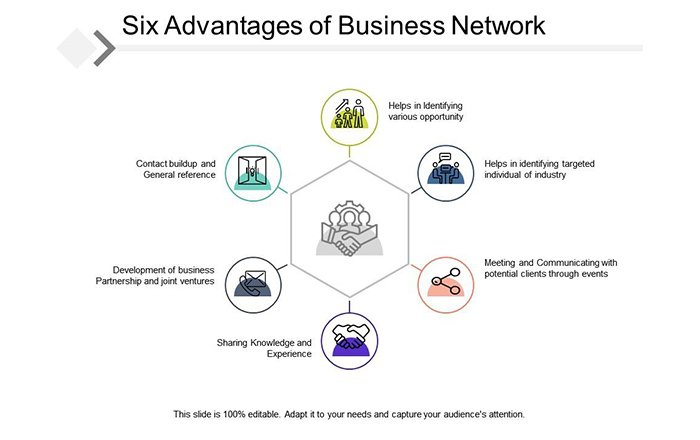Minority entrepreneurs face unique obstacles in the business world that are not experienced by those who identify with majority groups. This paper aims to provide a comprehensive outline of growth strategies specifically tailored for minority entrepreneurs and how they can use them to create an equitable environment where their businesses can reach their full potential.
Supporting historically underfunded communities is more important than ever, as increasing ownership among minorities could help reduce existing wage gaps between demographics while boosting local economies across America.
Understanding these challenges will be key when devising successful strategies – gaining insight into what it means to be a minority entrepreneur and analyzing the disparities they often encounter before delving into effective professional development concepts such as access to capital, leveraging networks/relationships, marketing and branding techniques or scaling and expansion approaches.
The hope is that this digestible framework serves aspiring and established minority-run companies looking for achievable ways towards success within enterprise ecosystems that have long been stacked against them due to unfair advantages made available only through legacy connections unseen furthering social inequality far beyond economic implications alone.
Contents
Understanding the Landscape
Definition and identification of minority entrepreneurs
Minority entrepreneurship is an increasingly important and growing sector in the modern economy.
To identify, understand, and support minority entrepreneurs it’s essential to first define them as individuals who are members of traditionally underrepresented groups such as racial or ethnic minorities; women; people with disabilities, or those belonging to sexual orientation/gender identity categories that have faced systemic disadvantage.
Minority entrepreneurs usually face greater economic disparities compared to their majority counterparts due to legal, social, and political discrimination- not just on a federal level but also within financial institutions, policymakers etc.- thus limiting access to capital needed for business growth.
Analysis of Barriers and disparities faced by minority entrepreneurs
The analysis of barriers and disparities faced by minority entrepreneurs is critical for understanding their unique needs.
Minority communities often have limited access to capital, networks, and resources which hinder growth opportunities significantly. Moreover, racial biases in banking systems can limit loan approval or cause higher interest rates compared to non-minority applicants with similar credentials.
Furthermore, the systemic effects from generations of marginalization continue to affect economic mobility today among many minorities creating further challenges in asset accumulation as well as gaining professional education/training needed for entrepreneurship success like licensees or business management courses.
Building a Solid Foundation

Developing a compelling vision and mission statement
Having a solid foundation is essential to any successful business. Developing a compelling vision and mission statement provides focus, direction, and purpose for the company as well as clarity when communicating with customers. This involves understanding key values of your organization that you wish to embody in all aspects of operations – from product/service delivery methods to customer relationships.
These statements should accurately reflect what sets your venture apart while being clear-cut without having too much technical language or jargon involved; it should be easy even for non-technical personnel within an organization (or potential customers) to comprehend exactly where their money will go if working with you or buying into specific offerings, ideas are ultimately trying tob e sold here!
Crafting a strong value proposition
Crafting a strong value proposition is one of the most essential building blocks to establishing success as a minority entrepreneur.
It requires identifying what sets your business apart from competitors, and creating an emotionally positive relationship with customers by conveying trustworthiness in addition to product/service offerings that meet their needs.
Your unique value proposition should encapsulate how you plan on making life easier for potential clients or investors–it’s about why they would choose YOUR company over another within the same space.
Establishing a robust business plan and setting achievable goals
Establishing a robust business plan and setting achievable goals are essential foundations for the success of minority entrepreneurs. Business plans provide structure and guide decision-making, integrating elements such as financial projections, marketing tactics, operations strategies, risks identification and management procedures.
It is important to set realistic yet ambitious goals that can be measured over time in order to monitor progress towards achieving long-term objectives. Crafting dynamic strategies while also preparing contingency measures will ensure stability under any circumstances while enabling continued growth into new markets.
Leveraging Networks and Relationships

Strategies for building strong professional networks
- Attending networking events
- Joining industry associations and forums,
- Leveraging existing connections through word-of-mouth promotion;
- Engaging with other professionals via social media platforms (i.e., LinkedIn);
- Participating in open houses or exhibitions that relevant to their field;
- Creating a supportive peer group composed of likeminded individuals working towards similar objectives
Investing the time necessary into fully understand one’s market sector can be invaluable as well when it comes to building meaningful relationships within the business realm which could result in long term growth potential opportunity outcomes
Leveraging mentorship and coaching programs
Mentorship and coaching are vital resources available to minority entrepreneurs. Programs such as SCORE’s Mentor Program, which offers free one-on-one mentoring for small business owners in their local area by successful experts from various industries provide an invaluable asset.
These mentors act both as coaches who can offer advice to navigate challenges that arise through the journey of founding a Minority Business Enterprise (MBE). Furthermore, they also serve as inspirational figures providing motivation during stressful times on the entrepreneurial path.
Marketing and Branding

Utilizing digital marketing strategies for cost-effective promotion
Digital marketing refers to the use of online channels such as websites, search engines, and email campaigns to promote a product or service in a way that allows businesses to:
- Establish their brand presence
- Increase web traffic
- Generate leads and conversions with potential customers
- Nurture relationships with current customers through emails and social media platforms alike
This can be done at much lower costs compared to other more traditional forms of advertising (e.g television commercials).
Leveraging social media platforms and online communities
Social media platforms are powerful tools for minority entrepreneurs to promote their businesses. They provide a great platform for connecting with customers quickly and cost-effectively, as well as establishing relationships through engaging content and meaningful conversations.
Additionally, utilizing online communities can help drive customer base growth by building brand awareness on diverse channels such as Reddit or Black Professionals Centralized Hub (BPCH). By being active in these spaces, entrepreneurs showcase their expertise while fostering connections among potential clients who share similar interests or backgrounds.
Engaging with customers and creating a loyal customer base
Engaging with customers is a key component of creating strong and long-lasting relationships that foster loyalty to a brand. For minority entrepreneurs, it’s especially important to create an environment where customers feel heard and valued. This may mean offering personal touches, such as virtual consultations or personalized discounts for returning purchases.
Additionally, investing in customer service training can help maintain high standards of quality when engaging with prospects and clients alike across digital channels like email automation or live chat tools. Businesses should also consider partnering up with influencers within their target demographic so they are better able to showcase how the product/service provides value from someone who looks likes them – making trust-building more seamless along the way.
Scaling and Expansion

Scaling operations while maintaining quality and customer satisfaction
Scaling operations is an important part of growth and expansion for any business. However, as minority entrepreneurs face additional barriers to success, it’s essential that scaling goes hand-in-hand with maintaining quality and customer satisfaction.
By investing in training staff on the latest processes or technologies used within their industry and focusing efforts on acquiring new customers while retaining old ones through gradually growing offerings can help businesses achieve a successful scale-up process without compromising service standards.
Additionally establishing feedback loops throughout your organization allows you to stay connected with what areas need improvement so that when expanding into new markets these challenges are addressed ahead on increasing chances at long-term sustainability.
Expanding into new markets and diversifying product/service offerings
Expanding into new markets is a powerful strategy for minority entrepreneurs to drive growth and establish their presence. Diversifying product/service offerings can open up more opportunities in various regions, industries, or customer segments previously underserved or overlooked by traditional businesses.
While launching international operations require much preparation upfront (i.e. understanding the business regulations of the country), there are also numerous low-cost online marketing options that allow small businesses to link with potential customers outside of local markets without huge capital investments; this could be an attractive option for many scaling companies looking to break beyond domestic boundaries quickly but efficiently!
Leveraging technology and automation for increased efficiency
Technology and automation are powerful tools for minority entrepreneurs looking to scale efficiently. Leveraging technology can help automate mundane tasks, allowing more time and resources to be devoted towards identifying new opportunities or developing innovative products/services.
Automation also reduces costs while improving accuracy; an important consideration when it comes to expanding operations without compromising quality control standards. Additionally, adopting the right technologies early on will enable businesses of any size (even small startups) access the same level of productivity as larger organizations—a key factor in sustained business growth through scalability efforts.
Continuous Learning and Professional Development

Importance of lifelong learning for minority entrepreneurs
Lifelong learning is essential for minority entrepreneurs to stay competitive in the market and ensure success. It provides them with the necessary knowledge, skills, and resources that are vital to remain relevant in their respective industries.
Investing time into professional development also prepares business owners to face emerging challenges while equipping them with tools needed for long-term growth of their businesses.
Participation in educational opportunities such as seminars, workshops or online courses leads to increased confidence which eventually translates into improved productivity and overall performance on both a personal level as well as organizationally speaking.
Strategies for staying updated with industry trends and best practices
Staying updated with industry trends and best practices is essential for minority entrepreneurs to keep abreast of economic, legal or technological advancements. This can be achieved by:
- Subscribing to relevant newsletters
- LinkedIn groups and podcasts
- Attending conferences in the niche area as well as webinars hosted by experts within the sector
- Reading trade journals/periodicals regularly related thereto
- Building relationships and collaborations with stakeholders such as researchers who provide insights on emerging issues that enable small business owners make informed decisions
Additionally one should consider applying for grants that may cover educational expenses like certifications which could further add value to their professional development goals.
Conclusion
Minority entrepreneurs are vital to our economy and society but face significant challenges in getting started.
This outline has provided a comprehensive overview of effective growth strategies that can be tailored for minority business owners to use on their journey toward success. Accessing capital, leveraging networks and relationships, engaging with customers through marketing and branding efforts, as well as scaling operations all play pivotal roles in empowering these individuals.
Despite the daunting obstacles they may encounter along the way – from cultural discrimination to inadequate resources – it’s clear that with enough dedication minorities can find ways to move forward successfully by utilizing support systems both within industry circles or peers who have gone before them. Every successful entrepreneur begins somewhere; let’s make sure we’re providing adequate encouragement so every individual reaches their full potential!

